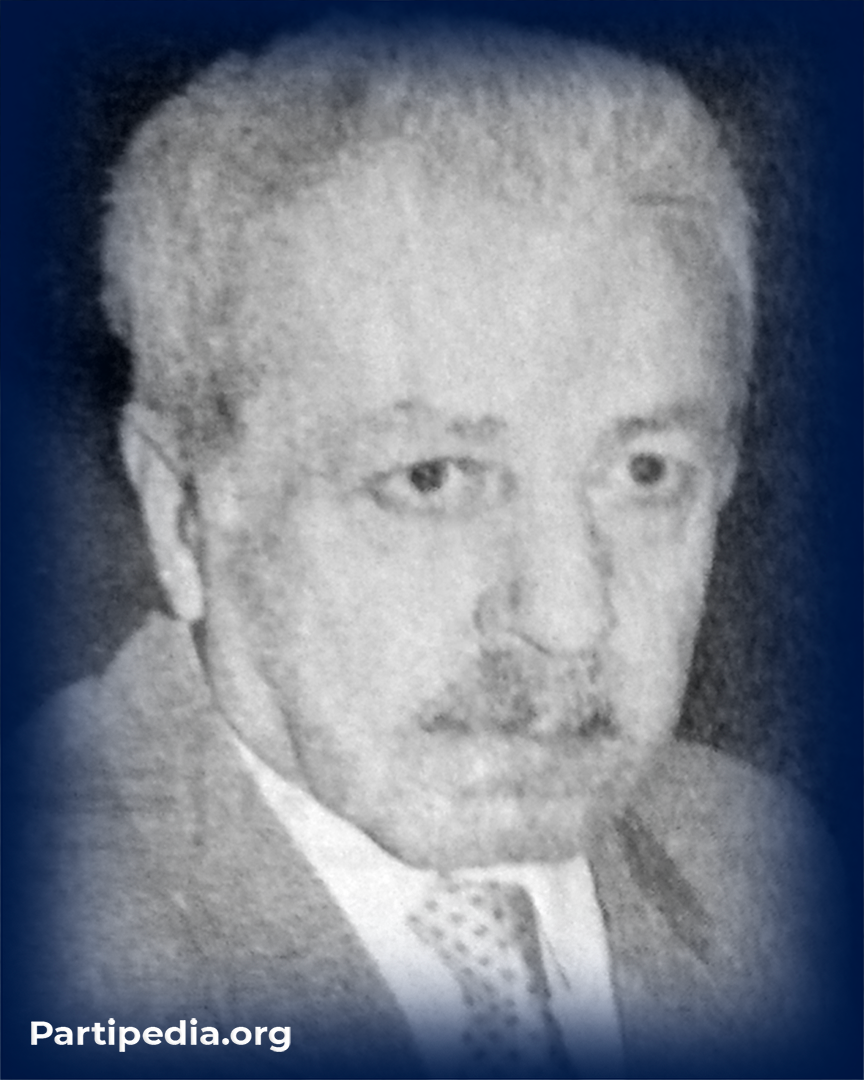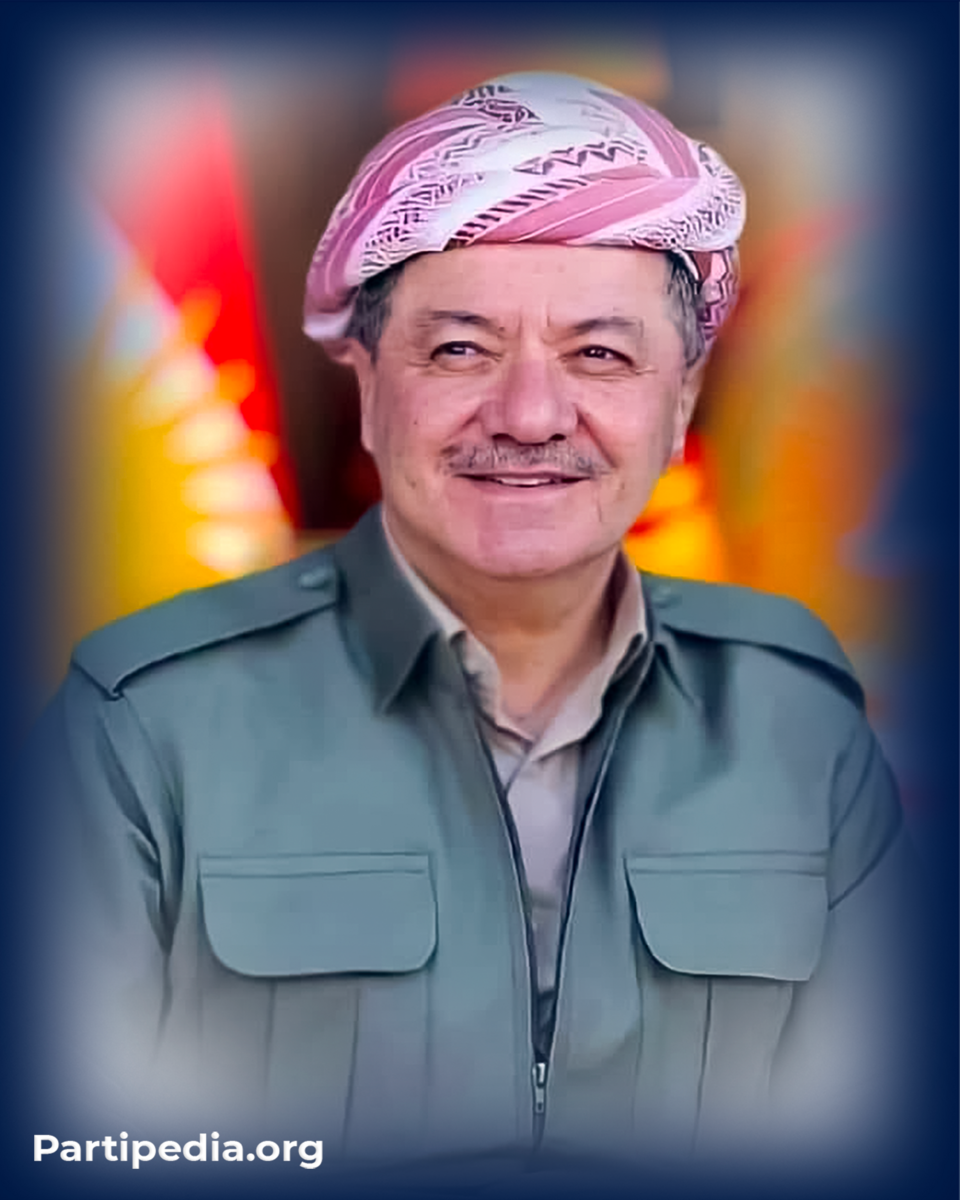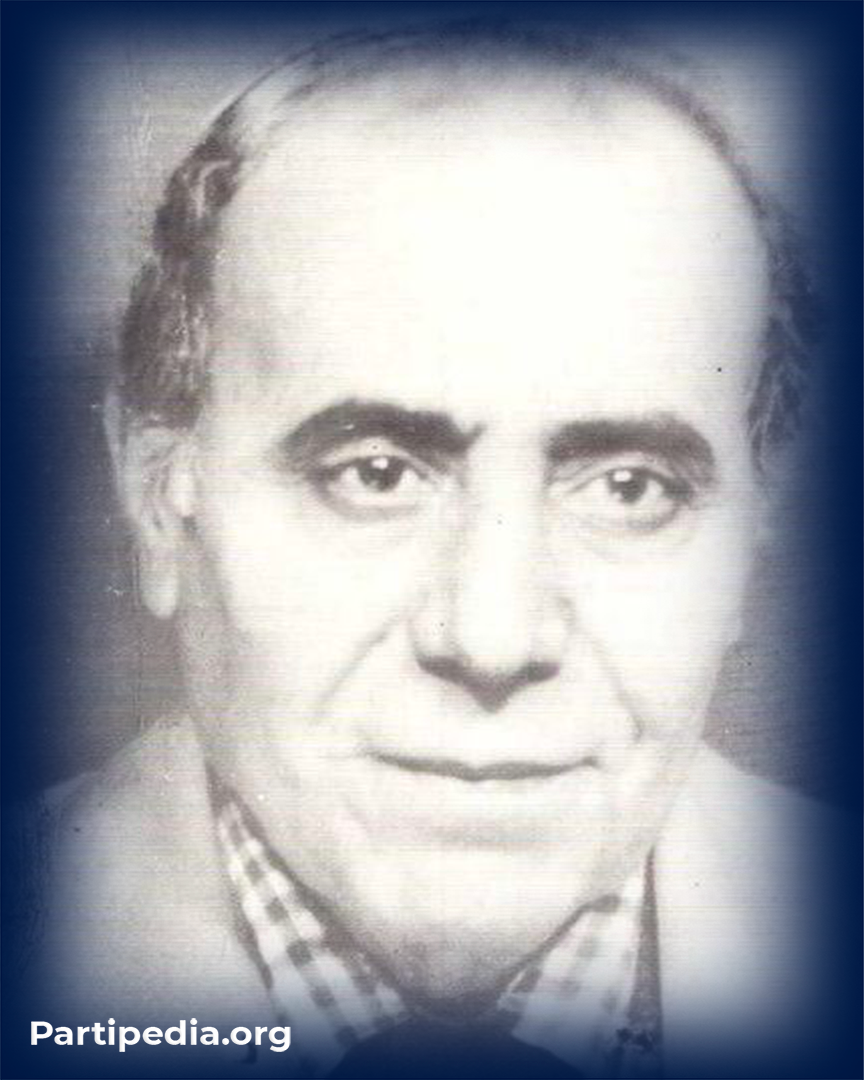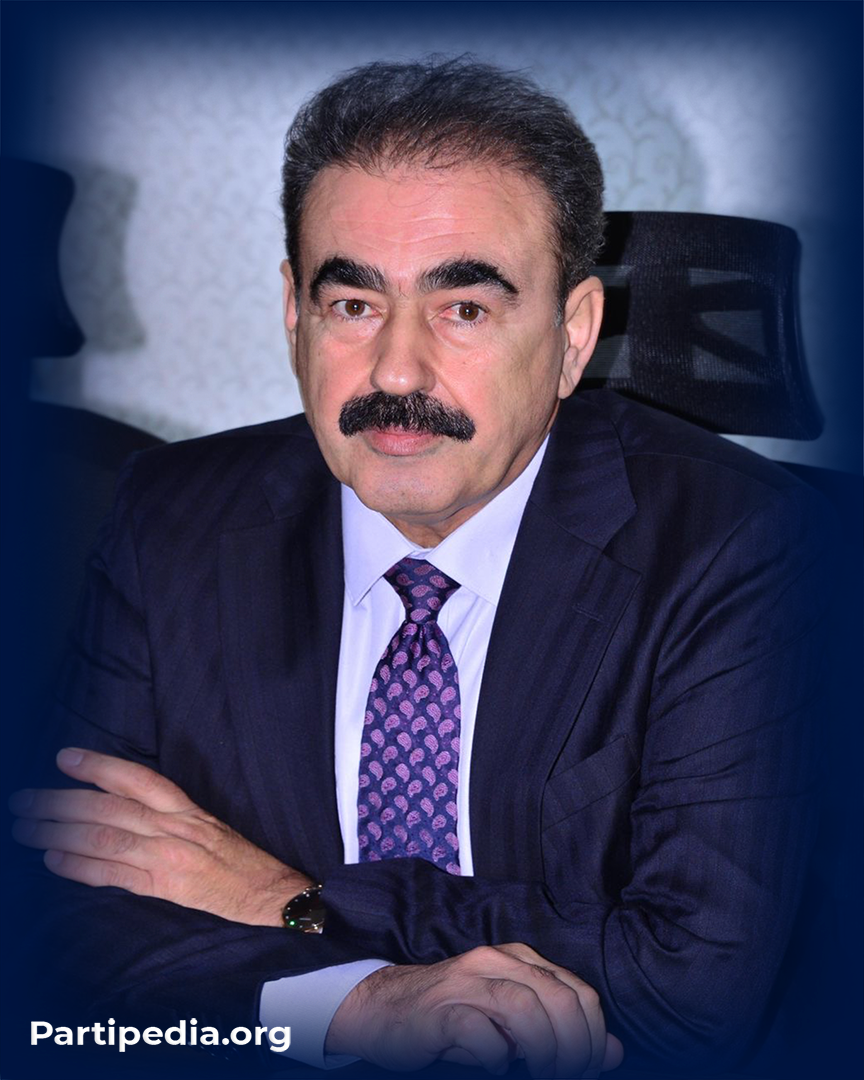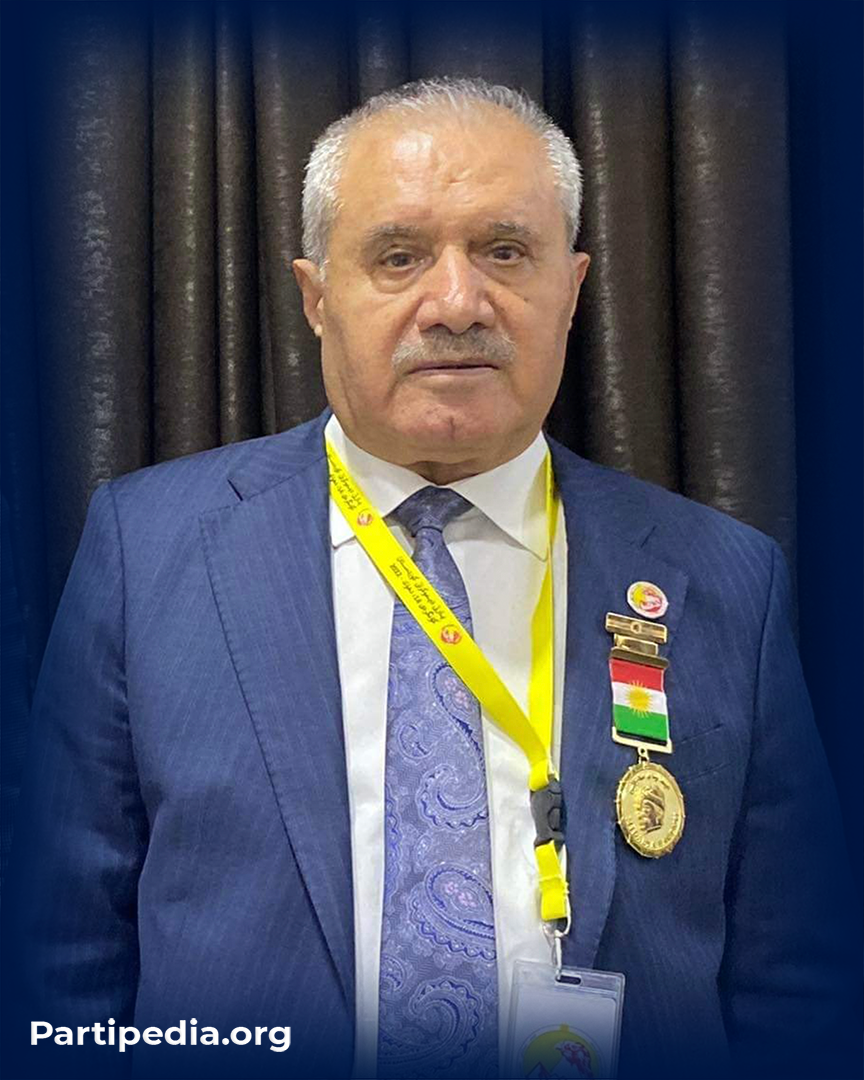Biography
In 1960, he attained the position of a member in the Central Committee of the Kurdistan Democratic Party (KDP). Subsequently, in 1964, he was elected as a member of the Political Bureau of the Central Committee in Sangasar village, situated in the province of Sulaimani. Hashim Hassan Rashid Hassan, who was also known by the names Hashim Akreyi and Hashim Haji Hassan, was born in 1926 in Akre, Mosul province. He completed his education at Sulaimani Teachers College in 1948 and served as the school's principal from 1954 to 1958. In 1959, he was transferred as a teacher to Ali Gharbi village in Maysan province, located in southern Iraq. Due to actions taken by the Iraqi authorities, he was exiled to Ammar province in southern Iraq during the early 1960s. By 1964, he had become a teacher at the sole secondary school in Ghala, which played a significant role in the September Revolution. His demise occurred on October 5, 1990, in Baghdad, and he was laid to rest in Pirban cemetery in Akre town, located in the Duhok province. He possessed a high level of proficiency in Kurdish, Arabic, and English languages.
Service Record
In 1943, Hashim Akreyi became a member of the Kurdish Hiwa Party in Akre, located in Mosul province. Subsequently, in 1946, he joined the Kurdish Democratic Party (KDP), followed by his membership in the Kurdistan Students Union (KSU) in 1953. In 1958, he assumed the position of Head of the Akre Regional Committee. During the same year, he served as the director of the first primary school in Akre, Mosul province, and received a promotion. Additionally, in 1959, he participated as a delegate in the Fourth Congress of the Kurdistan Democratic Party (KDP) and became a member of the first branch committee. Unfortunately, in that same year, he was arrested and subjected to torture by the coup plotters in Mosul, commanded by Colonel Abdul Wahab Shawaf. In 1960, he was elected as a member of the Central Committee of the Kurdistan Democratic Party (KDP). Following the fifth congress of the KDP, he was appointed as a member of the committee of the first branch under the leadership of Engineer Nuri Sadiq Ali (1922-1981). Continuing his service, in 1961, he joined the sixth staff under the guidance of Saleh Abdullah Najmaddin (1918-1981), also known as Sayda Saleh Yousfi. In 1961, he enlisted in the ranks of the Peshmerga forces. Two years later, in 1963, he served as a delegate to the First People's Congress (Koya Congress). During the same year, he was appointed by the Kurdistan People's Congress to be a member of the delegation for the September Revolution, tasked with negotiating with the Iraqi government. On March 30, 1963, he arrived in Baghdad to engage in negotiations concerning the rights of the Kurdish nation, but unfortunately he was subjected to imprisonment and torture in Iraq until 1964, following the negotiations with the authorities. He was eventually released in the Iraqi Republic.
During the final days of December 1963, he took part in a comprehensive gathering aimed at forming the revolutionary leadership council in Ranya, situated in the province of Sulaimani. However, this meeting failed to reach a conclusive outcome. On April 4, 1964, he was expelled from the ranks of the Kurdistan Democratic Party (KDP) by the Political Bureau wing due to his support for President Mustafa Barzani (1903-1979). In early May 1964, he was elected as a member of the preparatory committee for the sixth congress of the Kurdistan Democratic Party (KDP). Later that year, he was elected as a member of the Central Committee of the Kurdistan Democratic Party (KDP) during the Sixth Congress. Additionally, in 1964, he became a member of the Political Bureau of the Kurdistan Democratic Party (PDK) in Sangasar village of Sulaimani province. Likewise, he joined the Revolutionary Leadership Council in Iraqi Kurdistan during the same year and was appointed as a member of the Constitutional Committee of the Executive Office. In 1965, he assumed the role of the head of the first branch committee. On December 10, 1965, he was part of the Kurdistan Democratic Party (KDP) delegation, led by Habib Faily, Secretary of the KDP, for negotiations with the Iraqi government. In 1966, he was elected as a reserve member of the Central Committee of the Kurdistan Democratic Party (KDP) during the Seventh Congress. The following year, he contributed articles to the magazine Voice of Kurdistan, which served as the publication of the first branch committee of the Kurdistan Democratic Party. In 1968, he held the position of director for the first course of the Revolutionary Teachers Training Institute in Ghala village. In 1968-1969 he was the director and teacher of sociology of the first course of the Kurdistan Democratic Party (KDP) cadre’s training school in Chomani village of Erbil province. During the period of 1968-1969, he assumed the role of director for the inaugural course at the Revolutionary Teachers Training Institute, where he imparted knowledge in the field of psychology. In the same year, he selflessly volunteered as an Arabic teacher at Ghalawan Secondary School. Additionally, he served as the director for the second course at the Revolutionary Teacher Training Institute. Furthermore, he held the positions of director and instructor for sociology and modern history in the second phase of the school dedicated to training cadres for the Kurdistan Democratic Party (KDP) in the village of Nawprdani, located in the province of Erbil. In 1970, he was elected as a member of the Central Committee of the Kurdistan Democratic Party (KDP). On April 22, 1970, he was appointed as the Director General of the Kurdish Culture and Media Directorate. On Friday, June 12, 1970, he was part of the Kurdistan Democratic Party (PDK) delegation that visited Najaf in western Iraq to pay their respects at the funeral of the esteemed Ayatollah Abdul Mohsen Hakim (1889-1970), a prominent figure in the world of Shi'e Marja'i. Subsequently, on August 5, 1970, he represented the Kurdistan Democratic Party (KDP) at the third congress of the Kurdistan Teachers Union. On October 6, 1970, he received the appointment as governor of Duhok through a decree issued by the Revolutionary Leadership Council. On Thursday, August 12, 1971, he chaired the inaugural conference of the Duhok branch of the Kurdish Writers Union and delivered an address on behalf of the governor. In June 1972, he secured a position as a member of the executive committee during the Duhok congress of the Kurdish Cultural Association. Furthermore, on Thursday, August 12, 1971, he presided over the first conference of the Duhok branch of the Kurdish Writers Union and delivered a speech on behalf of the governor. Moreover, in June 1972, he was elected as a member of the executive committee for the Kurdish Cultural Association. Lastly, on Thursday, March 15, 1973, he actively participated in the Newroz celebration organized by the fifth branch committee, which took place in the Hall of Mustansiriyah University. On April 7, 1974, he was appointed Minister of Municipalities in the cabinet of Ahmad Hassan Bakr (1914-1982). On July 30, 1974, he was appointed as a member of the first legislative council of the Kurdistan Region by the order of Ahmad Hassan Bakri, the chairman of the Kurdistan Revolutionary Leadership Council. In 1973, Lieutenant Aziz Rashid Aziz (1924-1998), also known as Lieutenant Aziz Akraey, and Ismail Azizz Mustafa (1938-2015), known as Sheikh Ismail Mula Aziz, made the decision to distance themselves from their Kurdish identity within the Kurdistan Democratic Party (KDP) leadership and other members. Instead, they chose to align themselves with the Iraqi government. On Tuesday, September 24, 1974, Ahmad Hassan Bakr appointed Aziz as the Chairman of the Executive Council of the Kurdistan Region during its establishment phase. Subsequently, on October 5, 1974, he was appointed as the president of the Ba'athist Arab Socialist Party in the inaugural session of the Executive Council for the Kurdistan Region. From 1974 to 1976, he served as the Minister of Municipalities in the cabinet led by Ahmed Hassan Bakr. Following the collapse of the September Revolution in 1975, he assumed the role of editor-in-chief at the Arabic-language newspaper Al-Takhi. During the same year, he briefly held the position of president at the Kurdish Cultural Association in Baghdad. In the period of 1976-1977, he assumed the role of Governor of Babylon. On February 16, 1976, he was granted a license, along with Saleh Haider Assem and four others, to publish the Arabic-language newspaper Al-Iraq, under the condition that Al-Takhi would be discontinued. On March 22, 1977, he was appointed as a member of the second legislative council of the Kurdistan Region. Subsequently, on September 25, 1977, he was reappointed as a member of the second legislative council of the Kurdistan Region. From 1977 to 1981, he was appointed as the Chairman of the Executive Council of the Kurdistan Autonomous Region by the Iraqi Government. In 1977, he also held the position of minister of state in the cabinet of Ahmad Hassan Bakr. On December 15, 1977, he was designated as the acting Iraqi Minister of Commerce through a republican decree. However, on December 21, 1977, he was removed from the presidency of the Legislative Council of the Kurdistan Autonomous Region by a decree issued by the Revolutionary Leadership Council. Subsequently, he was appointed as a minister of state. On February 5, 1978, he assumed the role of acting minister of labor and social affairs through a republican decree. Later, on December 13, 1979, he was elected as the president of the Kurdish Cultural Association in Baghdad. In 1979, he became a member of the Arab People's Congress in Damascus, representing the High Committee of the Iraqi National Progressive Front. In 1981, he served as a minister of state in the cabinet led by Saddam Hussein. In the same year, he was honored with the Officer's Medal by the President of Mali. In 1983, he held the position of Minister of State for Foreign Affairs in Saddam Hussein's cabinet. In 1984, he was appointed as a minister of state in Saddam Hussein's cabinet. In 1987, he assumed the role of chairman for the privilege committee of the Iraqi Kurdish newspaper.
In the works of this author:
1. A theory of the concept of democracy in the thought of the Arab Socialist Baath Party - 1980.
2. Our national unity in the face of the enemy - 1981.
Sources:
-
ئـ.د.ئـ، ژماره فایلی ٤-FA، دهقی چاوپێكهوتن لهگهڵ فازڵ موتنی عهلیخان ناسراو به فازڵ میرانی لهلایهن سهبری زێباری، پیرمام، ٥ شوباتی ٢٠١٥ز، ل ٦.
-
علي سنجاري، القضیة الكوردیة وحزب البعث العربي الأشتراكي في العراق، الجزء الثالث، (دهوك ـ مطبعة خاني ـ ٢٠١٢م)، ص ٤١٩.
-
كریس كوچرا، جنبش ملی كرد، ترجمهی ابراهیم یونسی، چاپ دوم، (تهران ـ موسسه انتشارات نگاه ـ ١٣٧٧ھ . ش)، ص ٣٧٦.
-
مصطفی نهریمان، فهرههنگی ئهدیب و نوسهرانی كورد، (بهغدا ـ ئهمێندارێتی گشتی رۆشنبیری ولاوان ـ چاپخانهی ئهسعهد ـ ١٩٨٦ز)، ل ١٥٠.
-
شوان محهمهدئهمین تهها خۆشناو، ههولێر له نێوان ساڵانی ١٩٦٣ ـ ١٩٧٠ لێكۆڵینهوهیهكی مێژووییه له بارودۆخی سیاسی، (ههولێر ـ چاپخانهی زانكۆی سهڵاحهددین ـ ٢٠١٦ز)، ل ل ١١٤، ١٥٨.
-
عهبدوڕەحمان شهڕەفكهندی، چێشتی مجێور، (پاریس ـ ١٩٩٧ز)، ل ٤٤٢.
-
شوكت خزندار، سفر ومحطات الحزب الشیوعي العراقي ... رؤیة من الداخل، (بیروت ـ دار الكنوز الأدبیة ـ ٢٠٠٥م)، ص ص ٢٨١ ـ ٢٨٢.
-
شيء عن صحافة دهوك، مجلة زاگروس، وزارة الثقافة ـ أقلیم كردستان، العدد ٥، أربیل، نیسان ١٩٩٨م، ص ١٤.
-
تۆفیقی مهلا سدیق، بیرهوهریهكانی ڕۆژانی حیزبایهتی و پێشمهرگایهتی و دوور خرانهوهم، چاپی دووهم، (ههولێر ـ چاپخانهی شههاب ـ ١٩٩٦ز)، ل ل ٥٦، ٦٨، ٧٠، ٧٢، ٨١.
-
لهتیف نادر ڕەواندزی، گرینگی دهزگای زانیاری كوردستان له شۆڕشی مهزنی ئهیلوولی نهتهوایهتیدا، گۆڤاری گوڵان، ژماره ١٣٢، ههولێر، ٢ ئابی ١٩٩٧ز، ل ل ٤٥ ـ ٤٦.
-
جمیل حسین الجبوري، كبار ساسة العراق في العصر الجمهوري ١٩٥٨ ـ ٢٠٠٣، الجزء الاول، (القاهرة ـ المكتب
-
ماڵپهڕی لقی یهكی پارتی دیموکراتی کوردستان :
www.pdk ـ leqa١.com
-
محهمهد مهلا قادر، خهباتنامه كورته مێژووی پارتی و كولتووری بارزانی نهمر، چاپی دووهم، (ههولێر ـ دهزگای چاپ و بڵاوكردنهوهی ئاراس ـ ٢٠٠٧ز)، ل ل ٥٥ ،٦١، ٦٢، ٦٨.
-
مرسوم جمهوري رقم ٦٣، جریدة الوقائع العراقیة، وزارة العدل، العدد ٢٦٣٨، بغداد، الأثنین، ٢٠ شباط ١٩٧٨م، ص ٩.
-
مسعود البارزاني، البارزاني والحركة التحرریة الكردیة، المجلد الثالث، الطبعة الثانیة، (أربیل ـ مطبعة وزارة التربیة ـ ٢٠٠٢م)، ص ص ١٤٤، ٢٥٣، ٢٩١.
-
مسعود بارزانی، بارزانی و بزووتنهوهی ڕزگاریخوازی كورد، بهرگی سێیهم ـ بهشی دووهم، (ههولێر ـ چاپخانهی وهزارهتی پهروهرده ـ ٢٠٠٤ز)، ل ١٠٤.
-
وصفی حسن، دهسپێكا شۆرهشا ئیلولێ ل دهڤهرا بههدینان ١٩٦١ ـ ١٩٦٣، (دهۆك ـ چاپخانا خانی ـ ٢٠١٢ز)، ل ١٦٨.




